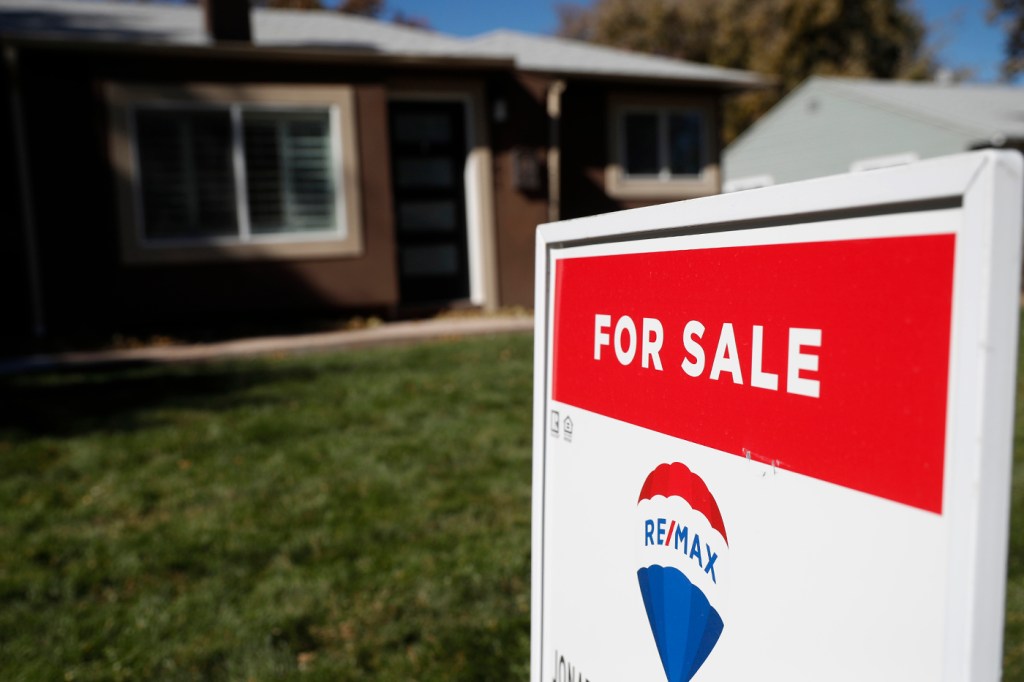Spend no more than 30% on housing? Not necessarily, Northeastern household finance experts say

You’ve probably heard the advice — spend no more than 30% of your net income on housing.
But while scrolling through Zillow in the midst of a nationwide housing shortage — and a housing “crisis” in major metropolitan areas like Boston and the Bay Area — you might be hard-pressed to find your next home within that parameter.
So, is the 30% allocation on housing relevant anymore?
It is … to a point, says Northeastern University household finance expert Andrés Shahidinejad.
“You may want to take into consideration that there’s maybe a certain ‘wisdom of the crowds’ in this focus on 30%,” says Shahidinejad, an assistant professor of finance and economics at Northeastern. “But don’t take it as dogma, either.”
Instead, Shahidinejad advises that we think of the 30%-on-housing advice as less of a rule than as a “rule of thumb.”
“There’s no scientific basis or magic reason for that being a cutoff,” Shahidinejad stresses.
Bob Triest, professor and chair of the Economics Department at Northeastern, says low-income families, in particular, may find 30% a helpful “guideline” in budgeting. But as basic necessities make up less of a person’s expenses as their income rises, the percentage of income spent on housing becomes less static.
“Households should definitely budget and — after paying for housing — make sure they have money left over for things they really need,” Triest said. “But 30% is an arbitrary number for most households.”
But if it’s so arbitrary, how did this “rule of thumb” come about?
Shahidinejad and Triest attribute it to a combination of observations of others’ household budgeting and the idea of diversifying your income to not focusing on a single asset.
The 30% rule of thumb has become so prevalent, however, that lenders now use a number close to 30% as part of their policy on maximum loan amounts, Shahidinejad says, reinforcing the adage.
But a rule of thumb is different from a hard and fast rule, Shahidinejad notes.
Plus, isn’t another adage that rules are made to be broken?
Because you’ll be in good company if you break the 30% rule of thumb.
Featured Posts
A record half of all renters in the United States spent more than 30% of their income on rent and utilities in 2022, according to a report by the Joint Center for Housing Studies at Harvard University.
Meanwhile, according to a recent study using Census Bureau statistics, 27.4% of homeowners are “cost burdened,” or “house poor” — meaning they pay more than 30% of their income on housing.
And Shahidinejad notes that in particularly expensive housing markets, it has become harder to keep housing expenses below 30% of your income.
So, you’re not alone if spending 30% on housing doesn’t work for you.
Nor should you necessarily panic, Shahidinejad says.
Instead, he recommends thinking about housing as being valuable in two ways.
First, Shahidinejad notes that you need a place to live. Thus, he says housing has what economists call a “consumption value,” meaning housing is literally a good that you consume and enjoy.
Second, housing has value as an asset. In 2021, home equity represented 28.5% of household wealth in the United States, according to the U.S. Census Bureau.
In fact, households have at times had so much wealth in their home equity that the idea of “using your house like a piggy bank” became buzzworthy in the mid-2010s and homeowners continue to tap their home equity to access loans.
Your budgeting for housing thus can depend on how you value your home.
If you are looking at a home as mainly a place to consume — say you’re living in Rome for a year and want to spend more time in the city and traveling around Europe than repairing a leaky chimney — paying 30% or less of your income in rent may make sense.
On the other hand, if you’re looking for an investment that will be a major source of future wealth, you may justify spending more than 30% of your income as a homeowner.
“If you think that this is going to be a very valuable asset in the future, it may make sense to put more of your eggs in that basket because you think those eggs are going to be the ones that grow,” Shahidinejad notes.
In fact, Triest advises that homeowners think of paying a mortgage not as simply an expense, but also as a way to save.
“For a homeowner, some of the mortgage payment is a payment of principal on the mortgage that is building up the equity they have in the house,” Triest says. “And that’s actually contributing to their net worth.”
Other expenses — or the lack thereof — may also shuffle around your budget to pay other than 30% of your income on housing, Shahidinejad notes.
For instance, maybe saving aggressively for college is a higher priority for you than housing, and a home that costs 25% of your income is fine. Or maybe living in a city with good public transportation will reduce your driving costs and free up money that allows for a more expensive home.
So, rather than focus on a 30% rule of thumb to decide your budget, Shahidinejad recommends focusing on what your ultimate life goals are, and then work backwards.
“There’s three levels: your life goals, your financial goals and how you budget on a month-to-month basis. You want to try to align all of them,” Shahidinejad says. “It’s only until you have everything — your life goals, your financial goals, and your budgeting — that you can evaluate whether any one specific part of the budget makes sense.”










